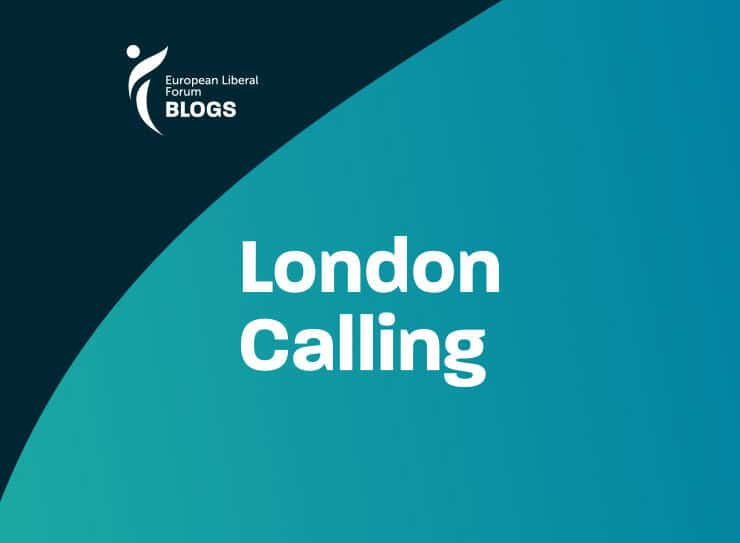14 July 2020
A tale of two cities
Blog Post by Irina von Wiese, former LibDem MEP London Calling is the European Liberal Forum’s column aimed at bridging […]

Blog Post by Irina von Wiese, former LibDem MEP London Calling is the European Liberal Forum’s column aimed at bridging […]

Blog Post by Irina von Wiese, former LibDem MEP
London Calling is the European Liberal Forum’s column aimed at bridging the Channel.
Life in London has changed rapidly and, for a while, almost beyond recognition. By the time of writing, more than 6,000 people have died from Covid-19. For over three months, citizens have been subject to the most drastic restrictions of personal freedoms in generations. Direct and indirect consequences of the pandemic cost thousands of Londoners their jobs and livelihoods, possibly for many decades. Many of London’s iconic, theatres, concert halls, clubs, restaurants and pubs will not survive the continued lockdown. And all of this before a likely second wave of infections and a No-Deal Brexit looming at the end of this year. To put it in British understatement: things do not look rosy.
Like elsewhere, the pandemic has provided an opportunity to rethink our way of life. Much has been made of the positive side-effects of the lockdown – cleaner air, flexible working and avoidance of stressful commuting – and the efforts to harness these positive effects. It is true that the lack of airplanes and, for a while at least, car traffic has had a welcome impact on air quality, noise pollution and wildlife. Many Londoners were happy to work from home and spend more time with their families.
But not everyone was so lucky.
The crisis has also shone a harsh light on the huge gap between those who have, and those who have not. Covid-19 has not created but amplified the shameful inequality of my hometown: it struck very differently the 10 percent of Londoners who own more than half of London’s wealth, and the 2.3 million Londoners who, by official definition, live in poverty. This is hardly surprising given that people are much more likely to suffer from physical and mental illness and die prematurely, from any disease, when they are born to poor parents, in deprived areas, and do not have access to early and effective education. Poverty, cramped living conditions, exposed front line jobs and co-morbidities fuel a discriminatory spread of the disease, with the most deprived Londoners four times as likely to get infected, and twice as likely to die of Covid-19 as the average. Across London, the bottom two fifth of the population are 50 percent more likely to fall critically ill with Covid-19 than higher earners. By the end of June, the London Boroughs of Brent and Croydon – two of the most deprived areas – had over 1500 cumulative confirmed cases, while affluent Kensington had just over 500.
Members of Black, Asian and ethnic minority (BAME) communities, many of whom work in frontline jobs and the National Health Service, were also hit harder than white Londoners. Here too, Black Lives seemed to Matter less.
As candidates gear up for next year’s Mayoral and London Assembly elections – originally planned for May 2020 and postponed by a year – , it remains to be seen how London’s leaders will deal with the problems of growing income and wealth gap, unequal access to education, resources and institutions, and gaping holes in the provision of social services. The challenges for London’s current and prospective new mayor are huge. Not least because of the failures of the national government: with the worst death rate in Europe, and one of the worst in the world, the UK has failed protect its citizens from the virus. Early indicators of the economic fallout are not good, either. Staggering unemployment rates and local flare-ups of infection are just starting to hit the headlines, while school closures, often without meaningful substitute learning provision, have deprived most children of almost five months of education. The end of freedom of movement for people, goods and services between the UK and the EU by 31 December will exacerbate these problems. Few of these issues fall within the jurisdiction of the Mayor, but how London will adjust may pave the way for the rest of Britain.
With 9.5 million residents, London is the beating heart of Britain’s economic, social and cultural life. It will survive Covid-19 as it survived other pandemics, catastrophes and crises before, and eventually re-emerge as the vibrant, open and liberal city I chose as my home 23 year ago. To thrive in a post-pandemic world, however, it cannot continue to turn a blind eye to inequality.